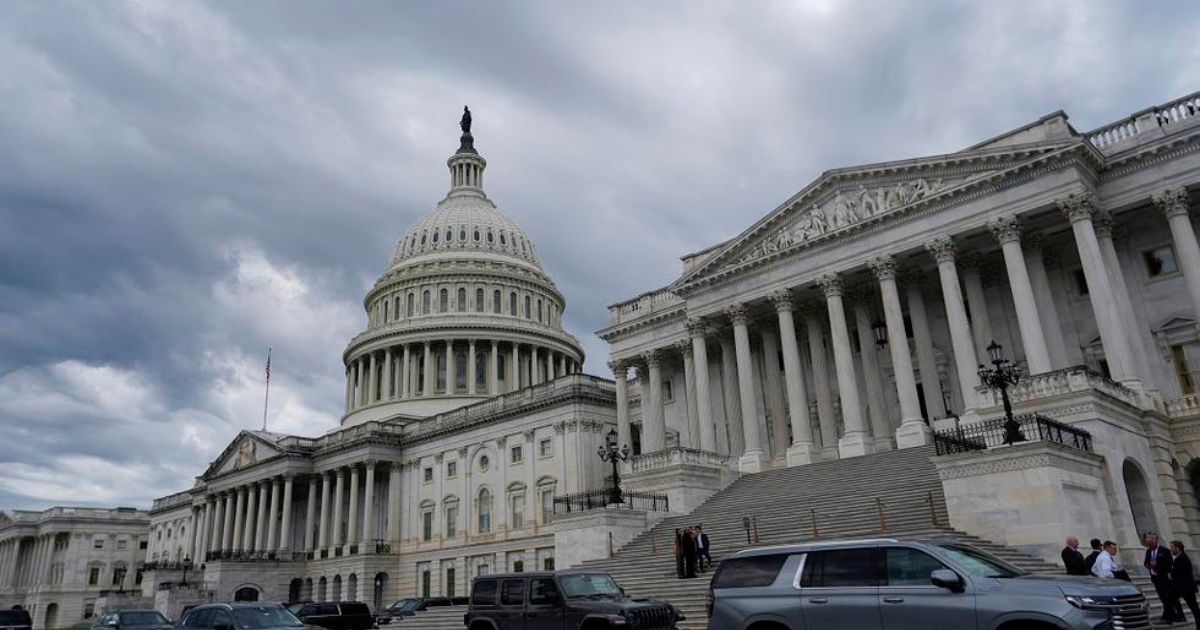The Senate Crypto Bill fails after yesterday’s procedural vote, degrading joint efforts to implement cryptocurrency regulation in the U.S. For the bill to pass over a filibuster, it needed 60 votes, but it could not achieve this.
With the support of industry leaders and several months of preparation, however, the legislation never realized its objectives. They anticipated that the measure would explain the regulation of digital assets in the U.S.
Key-Takeaways:
- The Senate Crypto Bill’s failure to pass legislation has left the crypto industry in a rudderless state, with enforcers such as the SEC and CFTC on the horizon. The same unpredictability will probably cause legal warfare in courts as businesses struggle to dispel ambiguous rules.
- Without federal guidelines, states are making up their own crypto regulation, leading to a tangled patchwork of legislation. Simultaneously, there are other more stable countries that are finding their way as crypto startup destinations, such as Singapore and Dubai.
Causes Behind Senate Crypto Bill Fails Vote

Lack of action from the Senate Crypto Bill fails due to political and policy barriers. The law consequently lacked the support it deserved because of these obstacles.
Several key Democratic lawmakers have recently taken a step back from the bill. Others claimed that the bill did not offer strong enough protections for crypto users.
Other Republicans had also reservations regarding the bill. They said the legislation would have a major limitation on cryptography innovation.
The political calendar made the path towards passage of the Senate Crypto Bill even more difficult. Around the time when there is an electoral season around, congressional agendas have focused on funding bills and campaigns rather.
Governance was shifting towards a trend of easier, existing forms of regulation. Many senators withdrew their support for the bill under growing public pressure and concerted efforts of the industry lobbyists.
The Senate Crypto Bill fails and was further complicated by regulatory turf wars. Recurring disagreements between government agencies led to complications during the entire process of the bill.
The SEC and CFTC both claim authority over different digital assets. Due to this opposition, it was not clear which of the agencies could be mandated to handle regulatory affairs.
This tension surfaced during debates on the bill. There had been much discussion beforehand about how to separate securities from commodities in the vote.
Cryptocurrency markets reacted quickly to the news as the Senate Crypto Bill failed. The movements of major digital assets turned very volatile right after the vote.
Bitcoin briefly dropped 5% before recovering. Several altcoins saw even steeper declines during the same period.
The top exchanges online experienced a rise in trading activity. Regulatory concerns had been on the minds of the investors due to the fall of the Senate Crypto Bill.
The Crypto Bill was not passed by the Senate, a development the executives in the crypto industry bore out. They revealed that the result may even postpone clarity in regulatory policies on the crypto industry.
Top executives of major corporations promised to keep innovation alive in spite of the setback that is part of the failure. They mentioned some initiatives and financial contributions had the potential to move to regions where there are more stable regulatory surroundings.
As a consequence of the outcome, some organizations have reported strategic direction assessments. These cover the review of internal compliant practices as well as a halt on strategic moves into new areas outside the country.
The international response to the Senate Crypto Bill’s failure underscored growing global competition for crypto business. Singapore, Dubai, and member countries of the EU emphasized how clear their regulatory structures were to give them an advantage.
These jurisdictions brought to the fore how ready they are to receive crypto companies looking for stability. The contrast with U.S. uncertainty was a recurring theme in official statements.
Analysts predicted that as the Senate Crypto bill fails, it could hasten a shift in strategy. There is an expectation that more crypto firms will exit to other places to avoid dealing with the laws.
Political Fallout After Senate Crypto Bill Fails

A blame has started spreading from lawmakers after the failure of the Senate Crypto Bill. Supporters of the bill stated that the tradeoff was necessary, while its opposition identified alternative explanations for failure.
For stablecoins and other digital assets to thrive globally, the world needs American leadership.
The Senate missed an opportunity to provide that leadership today by failing to advance the GENIUS Act.
This bill represents a once-in-a-generation opportunity to expand dollar…
— Treasury Secretary Scott Bessent (@SecScottBessent) May 8, 2025
While not agreeing with the bill, progressive Democrats believed in barring the passage of the bill. They argued that the measure did not sufficiently protect consumers, which may threaten typical investors.
Libertarian representatives in the Republicans emphasized the successful opposition. They saw the bill as an indication of regulation running off the rails that had to be stopped.
Campaign contributions have come under scrutiny following the Senate Crypto Bill’s failure in votes. Transparency campaigners have leaked investigations that show the payments made by crypto companies to influence influential representatives and Senators.
Surprisingly, the vote united legislators on different ends of the political spectrum. Despite extreme regulatory ambition, the progressive and conservative members of Congress came together to veto the bill.
The failed Senate Crypto Bill has thrown the discussion of the direction of future policy initiatives into the spotlight. Industry and policy insiders are now increasingly turning toward such targeted topics, such as addressing stablecoins or regulatory oversight, rather than pleading for sweeping changes.
Both in industry and in government, an increasing number of leaders are calling for this incremental model of regulation. So, with both sides reconvening, conversations are getting to specific and practical regulatory goals.
As the Senate Crypto Bill fails, regulatory authority remains with executive branch agencies. The agencies have handled the regulation of digital assets in a unique way.
The Securities and Exchange Commission will strengthen its current emphasis on the enforcement of compliance measures. A likely repercussion may be an increased SEC focus on token identification and digital asset exchange operations.
The challenge of continued fragmentation of regulatory remains for the market. Cryptocurrency companies are embarking upon a difficult environment as compliance expectations often conflict between federal and state authorities.
The failure of the Senate Crypto Bill may fuel the momentum to regulate crypto in the states nationwide. There have been crypto-specific bills introduced at the state level in the past months, and one would expect this activity to gain momentum.
Without federal regulations, states are also coming up with their own systems to fill the vacuum. Such development may lead to a rather complicated quilt of state regulations, which will be more complicated for nationally operating businesses to comply with.
Consequently, states can start to fight one another to attract additional cryptocurrency investors. States are trying to introduce regulatory policies to attract the investment in the cryptocurrency industry.
Legal challenges to regulatory actions are likely to rise after the Senate Crypto Bill fails. More than ever, regulatory agency interpretations are being taken to court by an increasing number of industry stakeholders.
The void in enacted legislation by Congress will be welcomed by these kinds of legal litigation. Failure to make things clear as a result of the collapse of the bill opens the door for lawsuits touching on jurisdiction and how the current legislative framework should be interpreted.
The litigation brought about by these issues may force the court to define the regulatory structure. In the face of legislative silence, the urge to answer regulatory questions may drive the courts to interpret existing legislation on cryptocurrency.
Conclusion

The Senate Crypto Bill fails despite months of negotiation and industry support, leaving the area with ambiguous regulation. Without legislation, agencies will pursue enforcement actions and provide guidance—courts will define important questions of regulation that guide the direction of the industry in the U.S.










